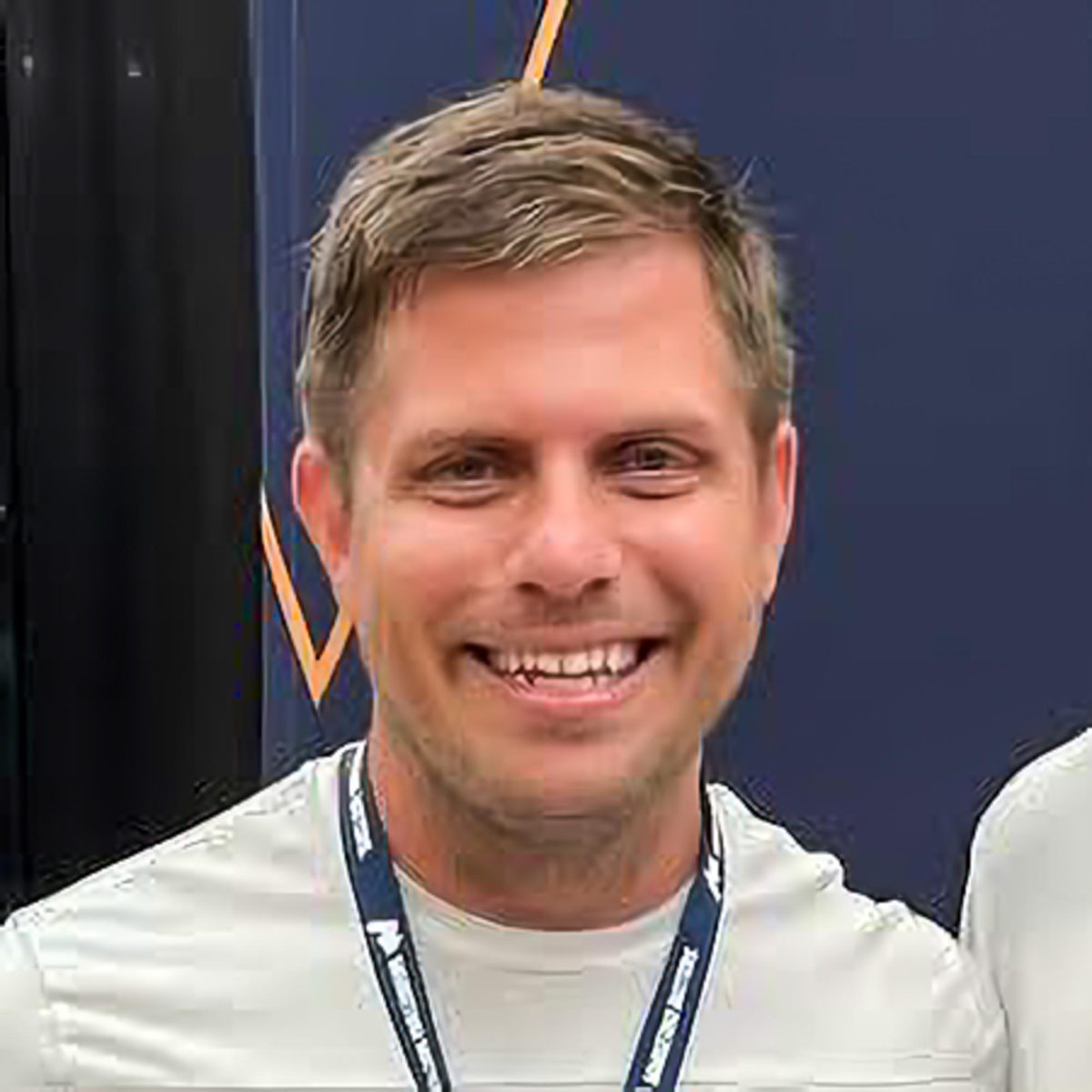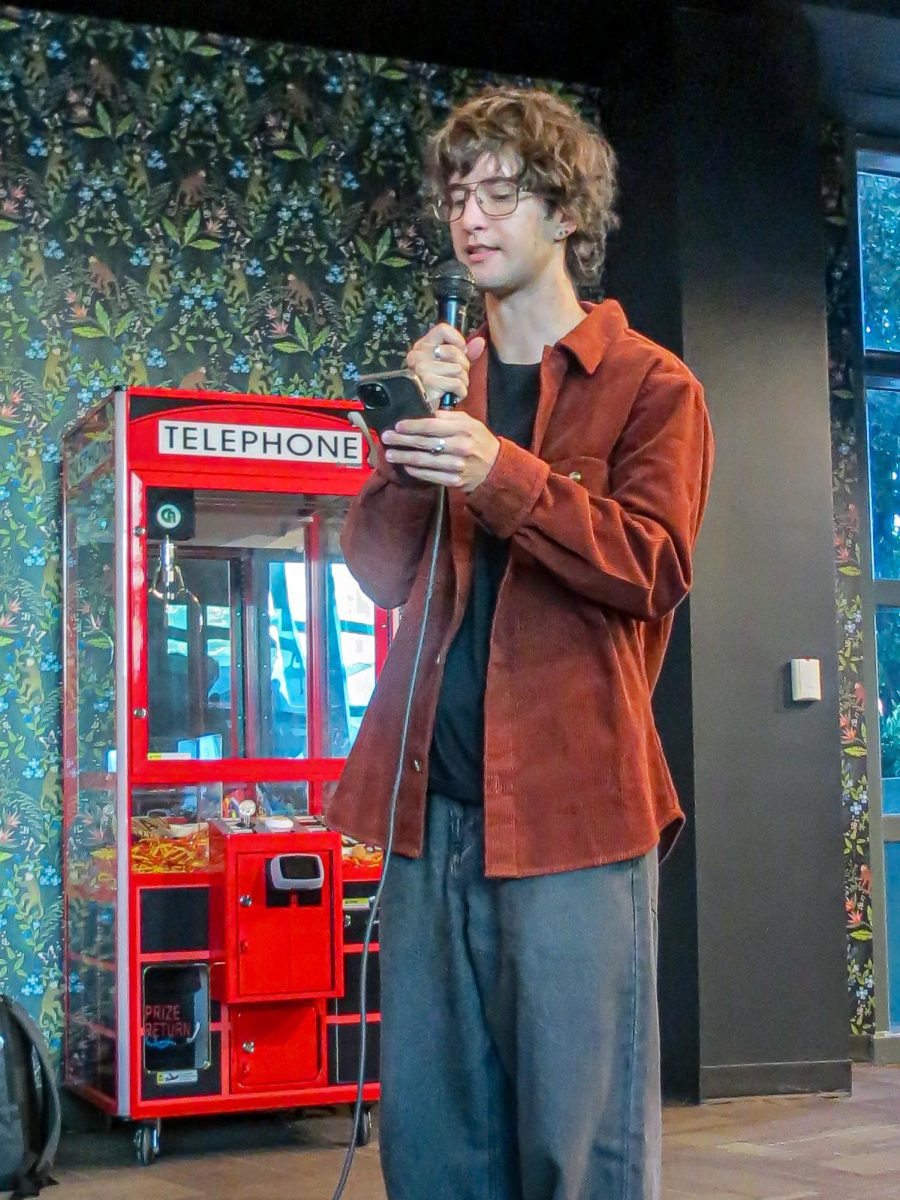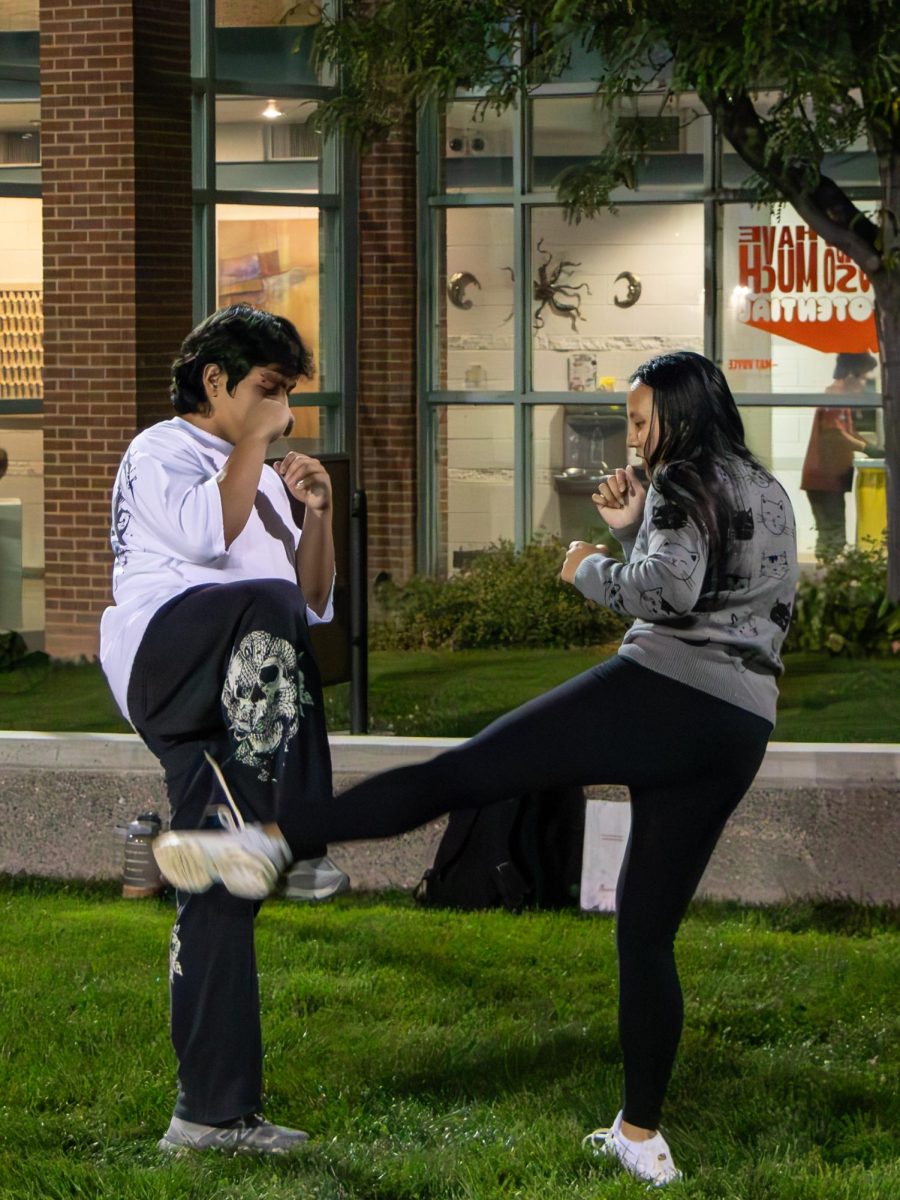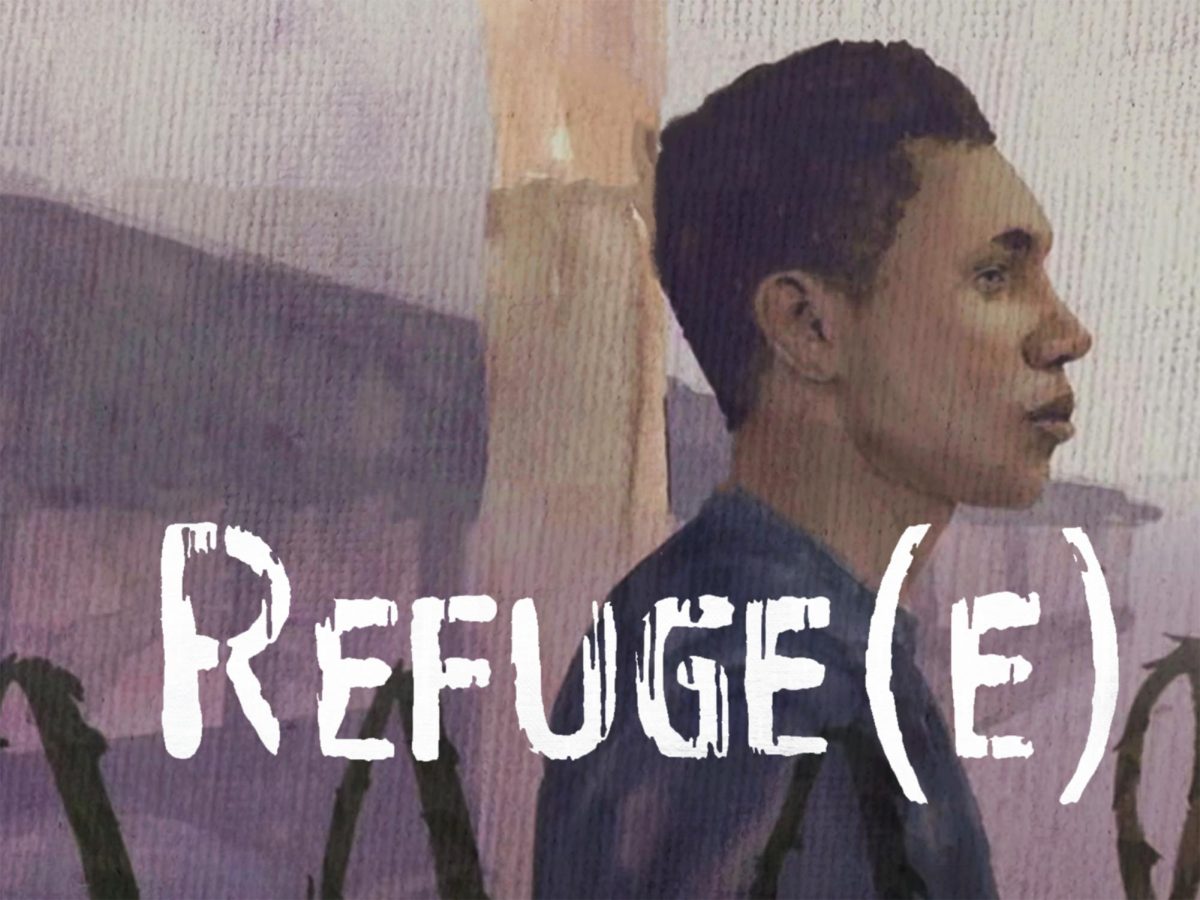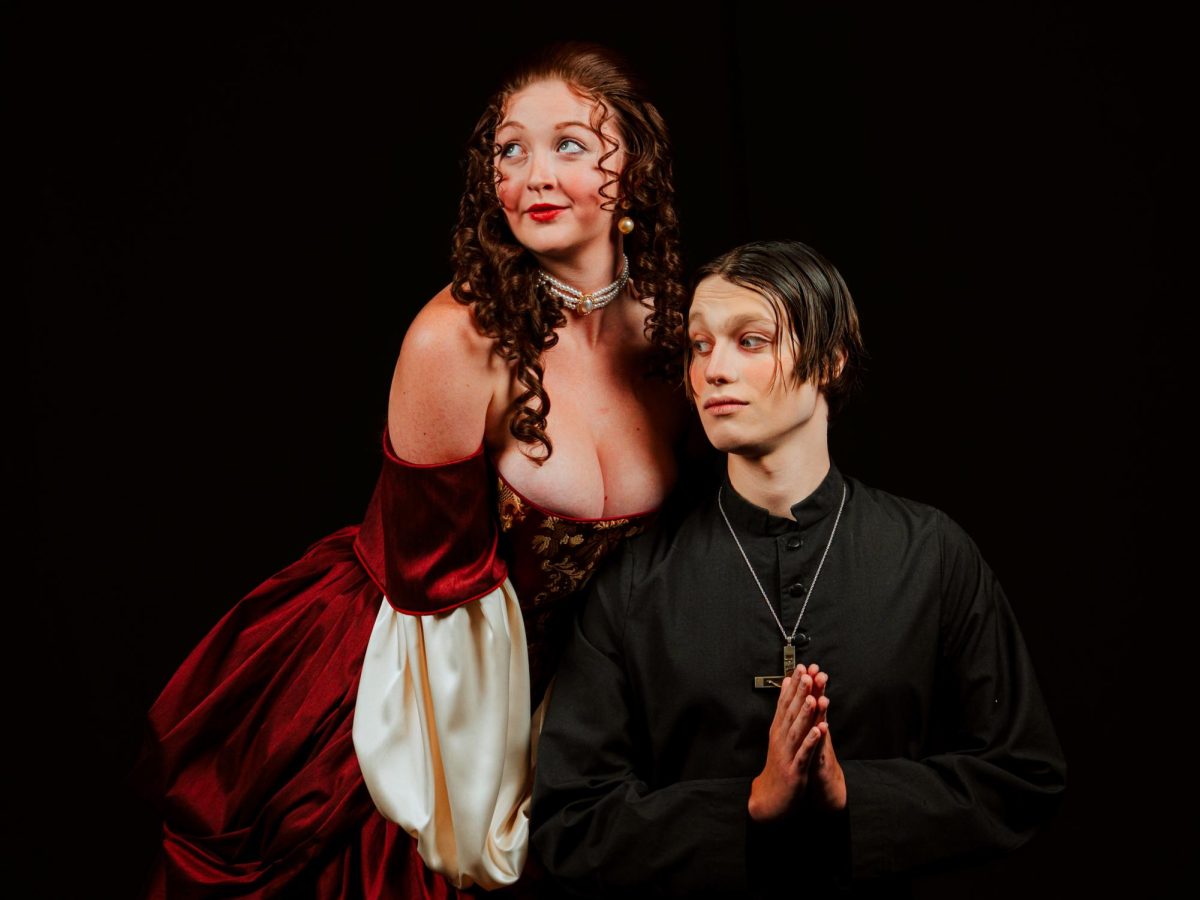With 13 panelists all sporting the flags that represent their place in the LGBT community, a night of difficult questions and even more difficult answers came to fruition on Friday.
The Gay Straight Alliance (GSA) at Colorado Mesa University hosted its “Ask the Gays” night in the East ballroom of the University Center. GSA Assistant Coordinator Shelby Cerise lead a set of discussions on all things LGBT, ranging from how to be a better ally, to what experiences the panelists faced when first coming out to even how the LGBT community could do a better job of supporting itself.
With a healthy mix of students and adults on the panel were two allies–those who may not be LGBT but still support their cause– an asexual panelist, two transgender students, one bisexual student and seven gay and lesbian panelists.
Each panelist had in front of them a flag that represented where they fell on the LGBT spectrum. Four of the flags were that of the labrys–also known as the double battle axe–symbol; a pagan symbol that today represents lesbian and feminist strength. The flags of the ally panelists were similar to the traditional rainbow pride flag, but with a twist: The traditional pride flag filled in the letter, “A” for “Ally,” on top of a black and white striped background.
The colors of the flags and the symbols that represented each panelist showcased a side of the LGBT community many people may not get to see. Definitions of what different types of sexualities there were even perplexed some of the older panelists, with Cerise acting as an unofficial dictionary. Learning about asexual, pansexual and even genderfluid persons was an opportunity 17 people got to experience at the panel discussion. While that number may seem low, Cerise said that it was one of their better turnouts for such an event.
“We had a lot of community involvement,” Cerise said. “Normally we don’t have this large of a [turnout] outside of the GSA population come.”
“Ask the Gays” happens every semester, and was handed down to GSA’s current leaders from previous coordinators, in the hopes of further educating people on the issues facing the LGBT community.
One such moment of enlightenment came when a question was asked about the idea of “coming out of the closet.” The panelists remarked that depending on circumstances, relationships with friends and family and the general environment around you, those within the LGBT community often have to go in and out of the metaphorical closet, in other words hide their identity to some, whilst being open to others.
There was also discussion, as previously mentioned, about the need for the LGBT community to help support itself and be more inclusive within its own realm. Particularly when it comes to allies wishing to attend pride events, or bi-sexual people possibly feeling isolated at pride events. There was also discussion of the different constructs that those particularly in the lesbian community face, when it comes to the type of women they date–more feminine vs. more masculine, lesbian dating of trans women, etc.
The nearly two hour discussion panel gave those in attendance a lesson in LGBT issues, ways in which those who want to be allies can do their part, and provided an open and honest discussion about those within the LGBT community.
GSA looks to continue the success of “Ask the Gays” as well as other types of outreach and educational events such as summits and their traditional meetings, which are held every Tuesday night at 5 p.m. in the East ballroom of the University Center.



